For the past couple of years it has become a tradition for movie fans to use the month of November to celebrate the genre of film noir. While this genre in its truest form does not really pop up all too often anymore, it has left a legacy in film which continues to this day. Noir blazed a path through cinema which led through some dark shadowed corridors and seedy underbellies. The gritty worlds they created never had a shortage of; tough antiheroes, posh crime bosses, and of course femme fatales. In honor of the month of Noirvember here are the greatest noir films of all time.
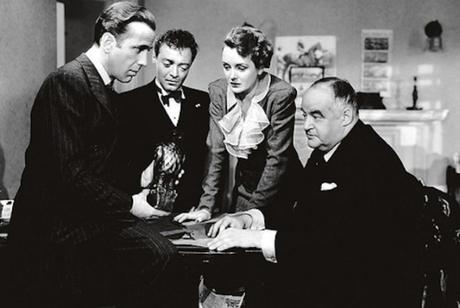
The Maltese Falcon: The movie which launched the genre and made Humphrey Bogart into a solidified leading man as the private eye, Sam Spade. The debut picture of legendary filmmaker, John Huston adapts the story of Spade's partner being hired to help a femme fatale only to be shot for his trouble. Since leaving the murder of his partner unsolved would be bad for business Sam Spade takes up the case to find out who did it. This leads the world weary detective into a showdown between; a sniveling henchman, a powerful crime lord, and the woman who hired him. All of this centers on the legendary Maltese Falcon, a legendary treasure which all of the parties are seeking. Described by Roger Ebert as a series of conversations with brief violent interludes, the Maltese Falcon has earned its spot among the greatest films of all time.
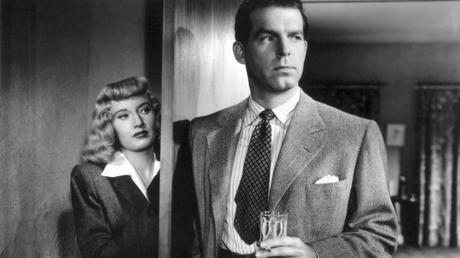
Double Indemnity: When an insurance salesman stumbles into his office suffering from a gunshot, you know things are about to get serious in Billy Wilder's noir masterpiece. Wilder not only brought his directing talents to telling this story but also wrote the screenplay with the legendary mystery writer Raymond Chandler. Fred MacMurray and Barbara Stanwyk portray an insurance salesman and an unhappy housewife who plot to murder her husband and reap the life insurance through a double indemnity clause. Their murderous plot seems to be a success as it appears her husband killed himself at a train station, but an insurance investigator played by the legendary Edward G. Robinson suspects foul play. As the investigator gets closer to the truth, the killers feel the tension ratchet up and have to resort to dire choices to stay a step ahead.
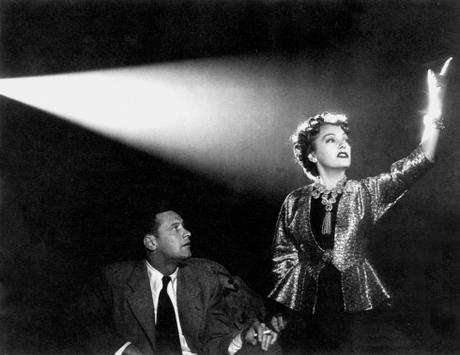
Sunset Boulevard: Another noir masterpiece from Billy Wilder, this classic shows that even the bright lights of Hollywood cast some dark shadows. Joe, a down on his luck screenwriter, hires out his services to the aged and forgotten actress Norma Desmond who is trying to put together a film which will be her comeback picture. As he works with her on the script he finds that Desmond has an obsession with him which is growing. Norma Desmond becomes more convinced that her old friend Cecil B. DeMille will make this dream movie of hers a reality, despite all evidence to the contrary. The actress begins to grow more delusional as the movie goes and Joe finds himself caught up in her madness. The genius of Sunset Boulevard is that thanks to the framing, we already know this movie will end in murder it is just a matter of building tension until we reach that inevitable conclusion.
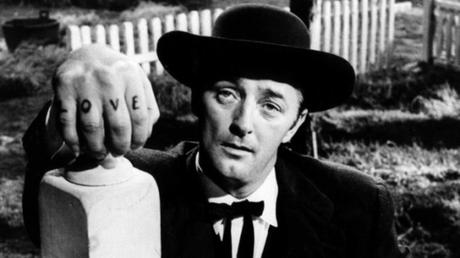
Night of the Hunter: In 1955 legendary actor Robert Mitchum gave audiences one of the most terrifying and memorable screen villains of all time. In a film Roger Ebert described perfectly as a stylistic nightmare, , is about Reverend Harry Powell a serial killer with deep religious convictions. When he learns his old cellmates children know the location of the money from a botched robbery, he moves into town and tries to intimidate them into giving the location of the loot. No matter how far they run, it seems only a matter of time before Powell shows up after them with the words "LOVE" and "HATE" tattooed across his knuckles, cheerfully singing his hymnals.
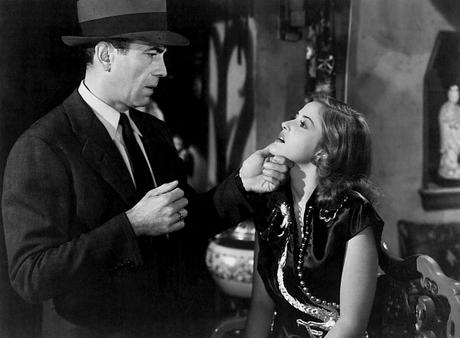
The Big Sleep: Humphrey Bogart goes from playing one legendary private eye in Sam Spade to another in Raymond Chandler's Phillip Marlow for this flick. Marlowe's case begins with aiding a wealthy man in helping his daughter, but things grow out of control from there. What follows is a complex plot involving; murder, blackmail, and seduction, with Marlowe caught in the middle of it all. The disjointed plot is more than compensated for by the electric chemistry Bogart and Bacall share as they are both absolutely captivating to watch. Like many other great noir films, the Hayes Code put a damper on what the movie could get away with, forcing the filmmakers to resort to clever means to make this classic and avoid censorship.
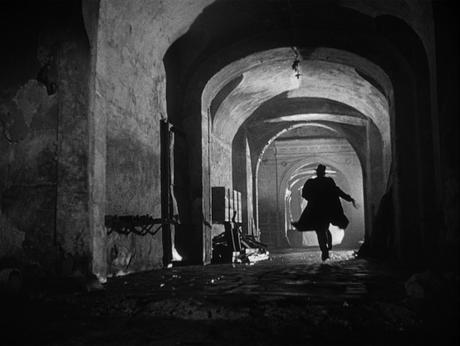
The Third Man: Film noir is often seen as a distinctly American genre which utilized German expressionism in its visuals. But with the Third Man from director Carol Reed, moviegoers all over the world found out the British could delve into dark and gritty stories as well. Holly Martins, played by Joseph Cotten of Mercury Theatre fame, travels to the fractured war-torn Vienna in order to find his friend Harry Lime. Unfortunately he discovers Lime has just been killed by a truck, so he has to settle for attending the funeral for his friend. Shortly thereafter Martins begins to encounter a cast of interesting characters, leading him to believe there is something more to his friends death. He investigates further and more and more elements of this case do not add up, and he begins to wonder if Lime is even dead. The Third Man ranks among the best British films of all time, being the perfect melding of; cinematography, atmosphere, music, and acting creating a near perfect moody thriller.
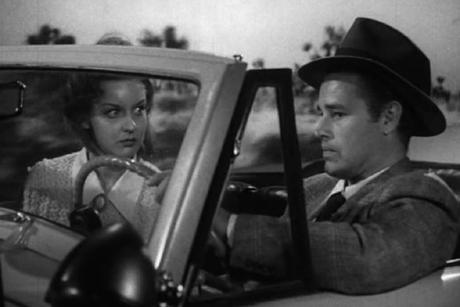
Detour: Edgar G. Ulmer is one of the most revered filmmakers to utilize the German Expressionist style so prevalent in the genre. In the genre of film noir, he is responsible for directing Detour one of the great classics of the genre. In a rundown diner we are introduced to Al, a down on his luck piano player who is hitchhiking across the nation to meet up with his girlfriend in California. He recounts his story of being picked up in Arizona by a bookie named Haskell in a convertible. An accident on Al's part ends in the death of Haskell. Knowing the police will not believe him, he ditches the body and takes the man's ID, cash, and convertible. His smooth getaway is ruined we he himself picks up a hitchhiker himself, a tough femme fatale named Vera. Armed with the knowledge of what happened, she blackmails Al into doing what she wants to get wealthy off of the dead man. Being your standard poverty row flick, Detour was lambasted by critics upon its release, but in the decades which followed it became hailed as the masterpiece that it is.

